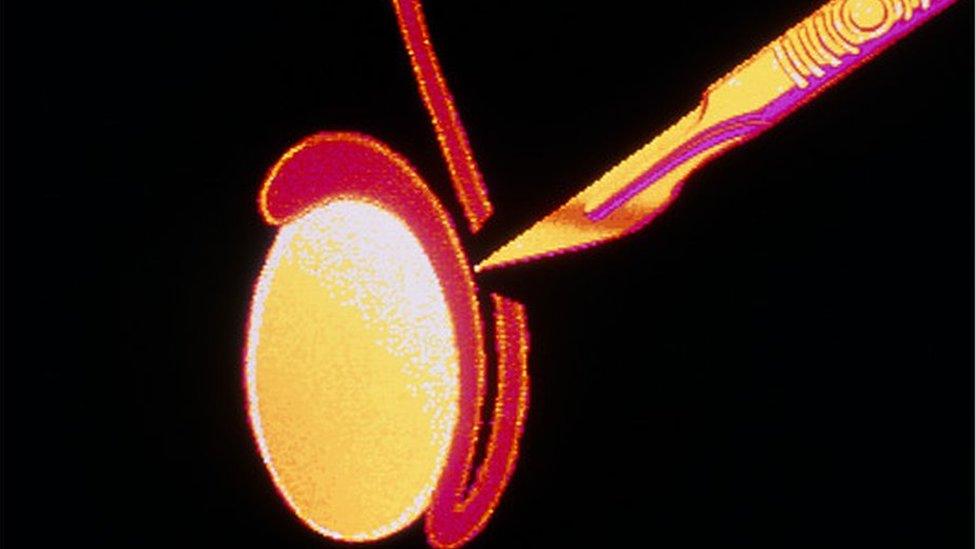Male contraceptive gel to be trialled on couples in Edinburgh
- Published

A "ground-breaking" trial of a new form of male contraception which uses a gel to stop sperm flow is to be carried out on couples in Edinburgh.
Researchers are looking for volunteers to take part in tests using a body gel as the sole method of birth control.
The gel, called NES/T, is a hormone-based treatment designed not to affect libido.
Men will apply it daily to their upper arms and shoulders and attend clinics to monitor their sperm count.
The research team at the University of Edinburgh hope couples in long-term relationships could eventually use the gel as an alternative to the female contraceptive pill.
Rate of effectiveness
Dr John Reynolds-Wright, who is leading the study, told the BBC's Good Morning Scotland programme it is hoped the gel will match the pill's effectiveness rate of 97 to 99%.
He said: "We've had some much smaller numbers involved in previous studies and know that it works.
"The purpose of this study is so we can tell people it is 99% effective.
"We do know that the risk is small and we need our volunteers to understand that there is a small but unknown risk of pregnancy during the study."

Male birth control

A vasectomy is designed to be permanent, although some men have successfully had the operation reversed
At the moment, men have two main options of contraceptive - wear a condom to catch the sperm, or have a sterilising operation (vasectomy) to cut or seal the two tubes that carry sperm to the penis from where it is made in the testicles.
Researchers have been investigating the potential for male hormonal contraceptives for about 20 years.
They have focused on ways of suppressing sperm production without causing unpleasant or unbearable side-effects.
Because men constantly produce sperm, high levels of hormones are needed to reduce levels from the normal sperm count of over 15 million per millilitre to under one million/ml.
The NES/T gel is designed to trigger a reaction in the man's brain that makes his testicles stop producing sperm.
Researchers say normal sperm production would return if the man stopped using the gel.

Dr Reynolds-Wright said male volunteers could be reassured that the programme would not remove any "masculine traits".
He said: "The gel contains testosterone, which is the male hormone, and a synthetic progesterone hormone, like the female contraceptive pill has.
"The progesterone part doesn't have any kind of feminising effects.
"The two hormones together help switch off the part of the brain that tells the testicles to make sperm.
"But because it's got testosterone in it, it won't remove any of the masculine traits that men have and it won't damage their libido."
Sexually transmitted infections
The research team are targeting couples in long-term relationships since, unlike condoms, the gel does not protect against sexually transmitted infections (STIs).
Dr Reynolds-Wright said: "There is always going to be a role for condoms in people's sex lives. We think this might play a role with people who, for example, are in regular relationships who have been tested for STIs.
"Either the female partner has decided she doesn't want to use contraception any more, or she maybe has health implications which mean she can't use contraception.
"This will create an additional option for those couples."
Men aged between 18 and 50, who are in a stable relationship with a woman aged between 18 and 34, who want to take part in the trial should call the Edinburgh team on 0131 242 2669.